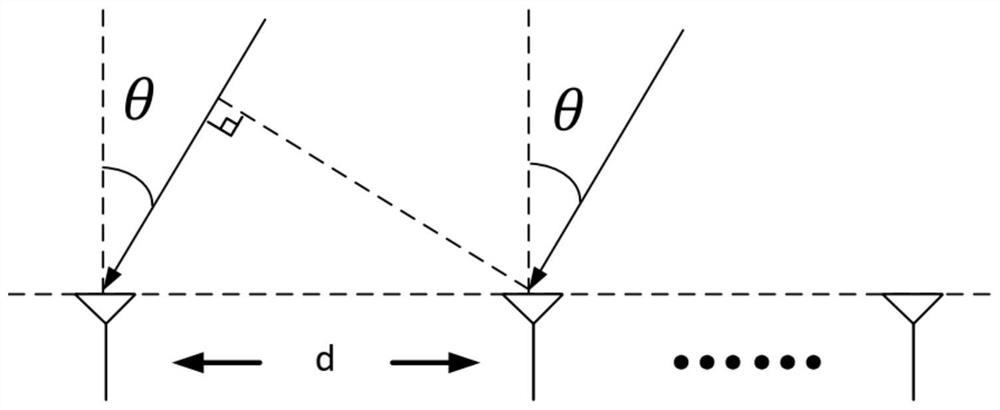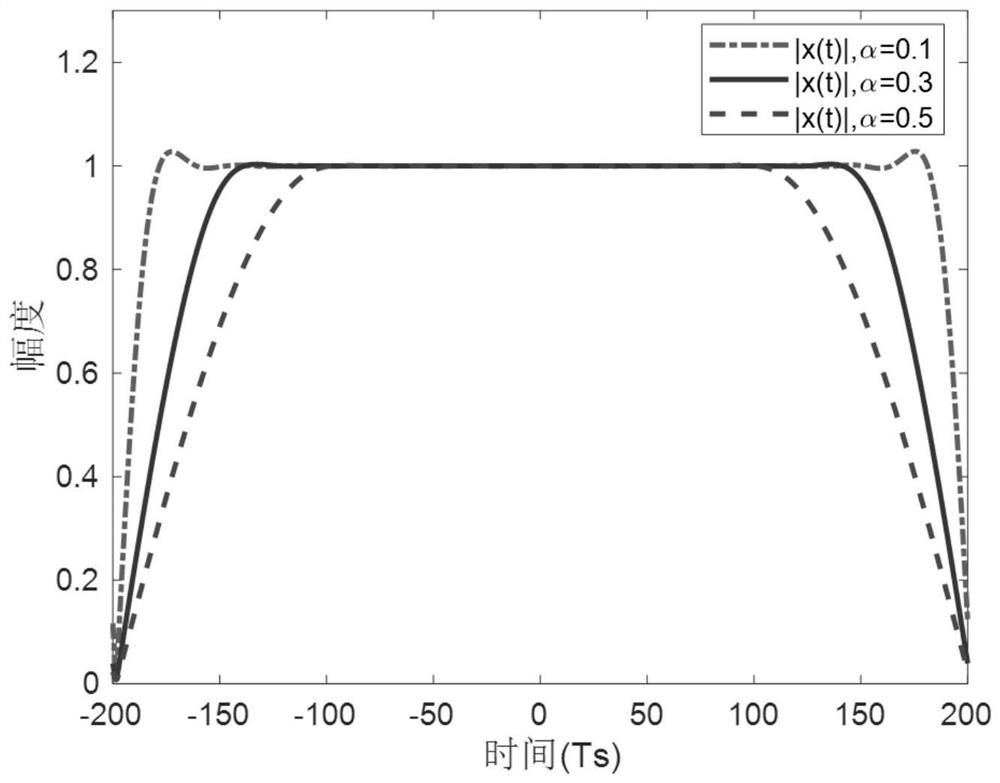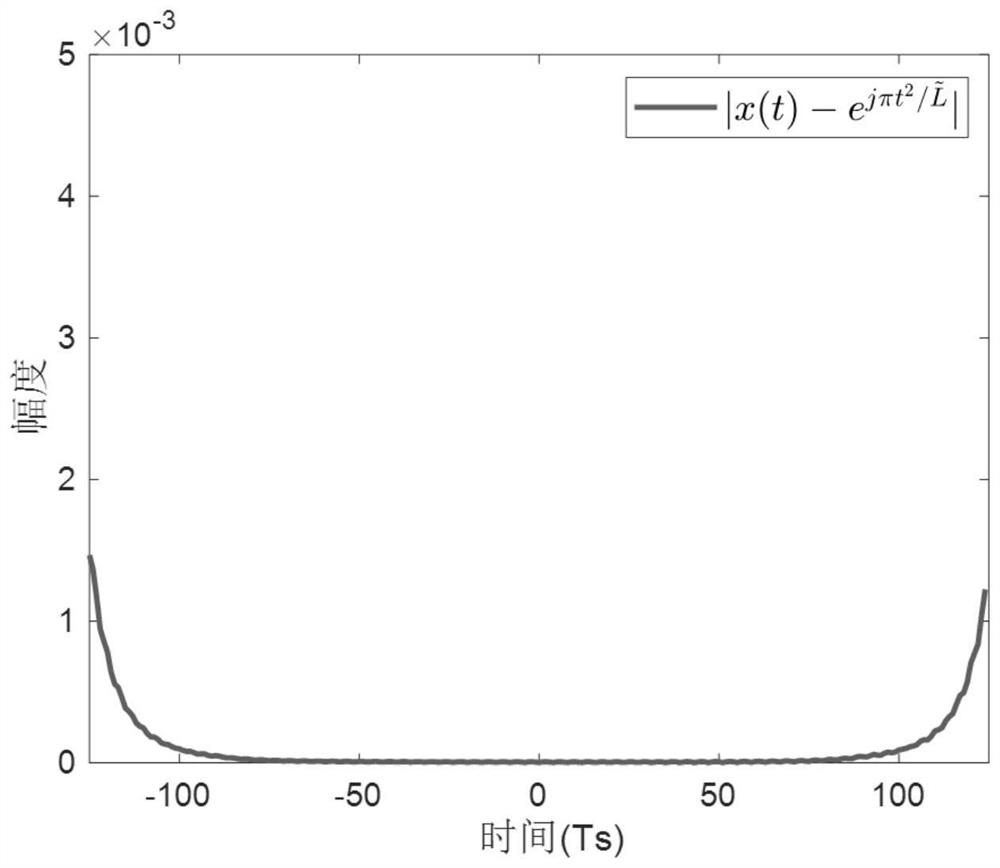Speed, angle and distance joint estimation method based on conjugate ZC sequence pairs
A joint estimation and sequence pair technique, applied in distance joint estimation, based on the velocity and angle fields of conjugated ZC sequence pairs, it can solve the problem of not considering the non-integer Nyquist sampling delay and not being able to distinguish multipath very well. Intensive signals and other problems, to achieve the effect of low hardware implementation complexity and reduced computational complexity
- Summary
- Abstract
- Description
- Claims
- Application Information
AI Technical Summary
Problems solved by technology
Method used
Image
Examples
Embodiment 1
[0144] Embodiment 1, considering that there are two paths in total, the frequency offset is ξ=[3×10 -5 , 7×10 -5 ] T s , the angle is θ=[5°, 20°], the time delay is τ=[1.2, 1.3]Ts, the channel gain where φ 1 and φ 2 is a randomly generated random number. The transmission distance and speed of the two paths correspond to ρ=[18,19.5]m and v=[75,175]m / s respectively. Image 6 The root mean square error (RMSE) curves of the velocity, angle, and distance estimates for the two path signals and their Cramelau lines (CRB). Simulation shows that the present invention can effectively estimate the speed, angle and distance of the multipath signal, and can achieve speed measurement accuracy of 1m / s, distance measurement accuracy of 1cm, and angle measurement accuracy of 0.01°.
Embodiment 2
[0145] In embodiment 2, considering the situation of two paths with the same channel gain, it is explored that the estimation result changes with the change of the angle difference and time delay difference between the two paths. The frequency deviation ξ of the two paths = [10 -5 , 10 -5 ] / T s , the angle is θ=[10°, 10°+Δθ], and the time delay is τ=[1.1, 1.1+Δτ]T s , the signal-to-noise ratio is 20dB. Figure 7 The first three pictures of the first path show the RMSE results of the frequency offset, angle, and delay of the first path signal, and the last three pictures show the corresponding CRB. The simulated contour shows that even in a harsh environment with dense multipaths, the present invention can distinguish multipaths by using time and space differences, and the simulation performance can approach CRB.
Embodiment 3
[0146] In embodiment 3, considering two paths with the same channel gain, the estimation accuracy of the alternate projection method used in the present invention is compared with that of the SAGE method. The frequency deviation ξ of the two paths = [10 -5 , 10 -4 ] / T s , the angle is θ=[10°, 15°], and the time delay is τ=[1.1, 1.1+Δτ]T s , the signal-to-noise ratio is 20dB. Figure 8 , Figure 9 , Figure 10 The variation of the RMSE results of frequency offset, angle and delay of the first path signal with the delay difference between the two paths is given. Simulation shows that the method of the present invention is better than the method of SAGE: with Δτ=0.25T s For example, the accuracy of frequency offset, angle and delay of SAGE method is 2×10 -5 / T s (corresponding to a speed error of 50m / s), 1.1°, 0.06T s (corresponding to the distance error of 90cm); and the frequency deviation, angle and time delay accuracy of the method of the present invention are 2.8×10...
PUM
 Login to View More
Login to View More Abstract
Description
Claims
Application Information
 Login to View More
Login to View More - R&D
- Intellectual Property
- Life Sciences
- Materials
- Tech Scout
- Unparalleled Data Quality
- Higher Quality Content
- 60% Fewer Hallucinations
Browse by: Latest US Patents, China's latest patents, Technical Efficacy Thesaurus, Application Domain, Technology Topic, Popular Technical Reports.
© 2025 PatSnap. All rights reserved.Legal|Privacy policy|Modern Slavery Act Transparency Statement|Sitemap|About US| Contact US: help@patsnap.com



